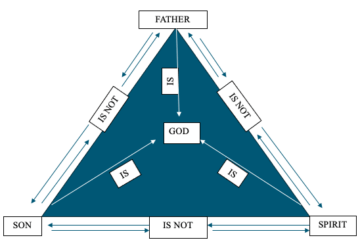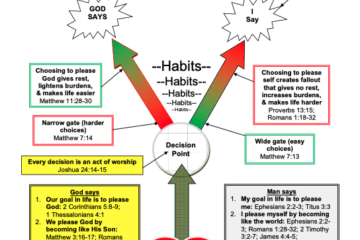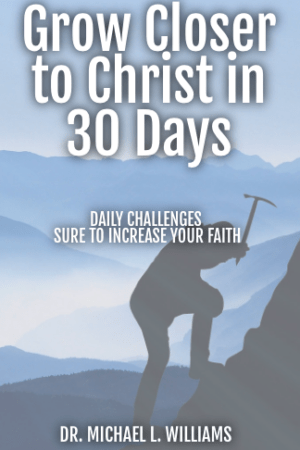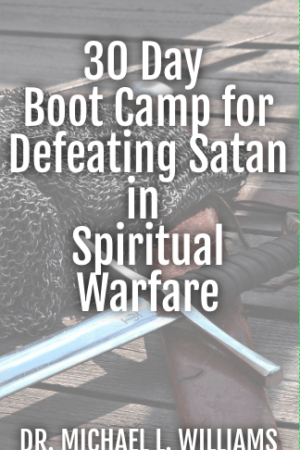By Dr. Michael Williams
Grief is one of the most agonizing personal life-changing emotions that we will experience in our lives. It can be caused by a variety of events such as the death of a loved one, loss of personal property and possessions that are dear to us, or even the break-up of a marriage or other relationship. Each of us experience grief in ways that are unique to us. However, grief often has the same negative effects that can affect all of us. For this reason, it is important to know the Spiritual perspectives of grief.
Grief in the Biblical account of Job
In the book of Job, we find the account of how a man named Job suffered from grief and what he did to get through it. He was a Godly husband and father that did not focus on earthly riches or fame. He had a large household, numerous flocks, and was known as a great man. He regularly ministered to his family by praying and making offerings for the sins and blessings of his family.
However, and most importantly, God declared that there was no one like Job in all the earth; that he was perfect and upright, feared God, and avoided evil (Job 1:1; Job 1:8; Job 2:3). Yet, despite having everything going right for him, Job experienced tragedy that would profoundly affect his life with grief. This tragedy came from his experiences that resulted in the loss of his servants, his flocks, his children, and even his health.
The first experience when Job suffered grief was when he simultaneously lost those that worked for him, his flocks, and his sons. In each instance, messengers that survived the events came and told Job what had happened. After he heard the three accounts of what happened, Job reacted in grief by tearing his clothes, shaving his head, and falling upon the ground and worshiping God.
The second experience when Job suffered grief was when he suffered from painfully debilitating boils all over his body. The boils were so bad that he had to take a broken piece of pottery and use it to scrape the scabs and dried drainage from the boils off his body. In the midst of Job’s agonizing struggles with his health, Job’s wife made the situation worse by turning on him. She asked him why he was maintaining his integrity and should curse God and die. Despite this, Job said nothing against God and was silent for seven days and nights.
The third experience when Job suffered grief is when his friends came to mourn with him and comfort him. During the seven days and nights, they said nothing because they saw his extreme grief. Then, one by one, they offered their own reasoning of why these tragedies happened to Job. As if matters were not bad enough, even a young man that was not one of Job’s friends offered his opinion about the events. In each case, their explanations did not provide any real answers, but instead, made it worse for Job.
Finally, Job suffered grief when he allowed the rejection by his wife, and the bad advice and counsel of others to get to him. His grief turned inward and became depression. Job began to think that he should have never been born: that everyone would be better off if he had just died. Job’s depression and inward loathing became so severe that his thoughts were continually leading him to lose his will to live.
What can we learn from Job’s experience?
Job suffered physically and emotionally: In the first experience of grief, Job tore off his clothes and shaved his head. Often, when we experience a traumatic event, we are overwhelmed with emotion and physically suffer from the firestorm of events we just experienced. Many of us, like Job, will do strange things because we are not able to deal with the situation in ways that make sense. So, we will say and do things that will make us unable to function.
In the second experience when Job suffered physically from the boils, he tried to manage the boils in a way that was not good for his recovery and exposed him to the risk of infection. Often, we will try anything to manage our health issues, even things that put us at great risk. This is because we are looking for any answer and relief that will get us through what we are experiencing.
Also, during this experience and the third experience, Job suffered emotionally from the rejection of his wife and the bad advice and counsel of his friends and others. This is probably the hardest aspect of dealing with grief, when those we love, and respect abandon us or offer advice that does not point us back to God. Instead, their actions and advice end up driving us away from God and into depression and eventually self-destruction, if not handled right.
What should we do when we suffer from grief? No matter what the situation, God did not intend for us to suffer alone in times of grief. This is especially true if we are so overwhelmed with grief that we cannot function. This is not to say that we should not grieve at all, but instead, our grief should be such that it leads to a positive outcome. Therefore, it is important that anyone that is suffering from grief has people that will consistently be part of a system that will provide for their physical, emotional, and Spiritual needs.
This is called a support system – a system of support that is closely engaged until such time that we are able to resume a safe and healthy life again. Those that are part of a support system must consistently be there to make sure the person grieving is able to maintain the activities of daily living. This includes such things as eating, bathing, personal care, and maintaining their living arrangements. Without such a support system, the potential to spiral into self-destructive depression, like Job, becomes extremely probable and dangerous.
Most importantly, those involved as a support system must be competent and grounded in addressing the Spiritual aspects of grief. They must actively encourage those suffering to draw closer to God for the strength and direction needed to overcome it. Without such direction and support, they lack the ability to rely upon God and all the Spiritual aspects of getting through their grief. This will only lead to worse physical, intellectual, and emotional fallout and dramatically increase the risk of harm to those grieving.
References: Genesis 2:18; Numbers 11:11-15; Job 1-2; Job 7; Job 16; Psalms 102; Philippians 4:4-9; 1 Peter 2:19-25.

Dr. Michael L. Williams, Head of Ministry Operations and Technology at Christianity Every Day, is a Christ-centered Author, Educator, Biblical Counselor and Advisor. He is ordained in Pastoral Ministry and formerly the founding Pastor of Selah Mountain Ministries, a church started along with his wife, Pamela Rose, after several years of pastoral experience and training in Biblical Counseling. Selah Mountain provided Biblical counseling and education to the public on how to overcome life issues Biblically on topics such as anger management, marriage, addictions, and other subjects – often referred to as mental illnesses. To learn more about Dr. Mike visit the About page.
























